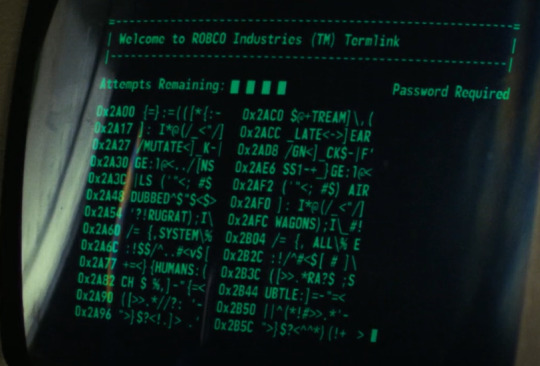#perfection
Text

#amazing body#beautiful body#beautiful women#perfection#gorgeous#tight butt#luscious lips#beautiful eyes#bewbsfordays#huge bewbs
245 notes
·
View notes
Text

ARE YOU FUCKING KIDDING ME EVERY DETAIL--
172 notes
·
View notes
Text
Writing Tips - Beating Perfectionism
1. Recognising writing perfectionism. It’s not usually as literal as “This isn’t 100% perfect and so it is the worst thing ever”, in my experience it usually sneaks up more subtly. Things like where you should probably be continuing on but if you don’t figure out how to word this paragraph better it’s just going to bug you the whole time, or where you’re growing demotivated because you don’t know how to describe the scene 100% exactly as you can imagine it in your head, or things along those lines where your desire to be exact can get in the way of progression. In isolated scenarios this is natural, but if it’s regularly and notably impacting your progress then there’s a more pressing issue
2. Write now, edit later. Easier said than done, which always infuriated me until I worked out how it translates into practice; you need to recognise what the purpose of this stage of the writing process is and when editing will hinder you more than help you. Anything up to and including your first draft is purely done for structural and creative purposes, and trying to impose perfection on a creative process will naturally stifle said creativity. Creativity demands the freedom of imperfection
3. Perfection is stagnant. We all know that we have to give our characters flaws and challenges to overcome since, otherwise, there’s no room for growth or conflict or plot, and it ends up being boring and predictable at best - and it’s just the same as your writing. Say you wrote the absolute perfect book; the perfect plot, the perfect characters, the perfect arcs, the perfect ending, etc etc. It’s an overnight bestseller and you’re discussed as a literary great for all time. Everyone, even those outside of your target demographic, call it the perfect book. Not only would that first require you to turn the perfect book into something objective, which is impossible, but it would also mean that you would either never write again, because you can never do better than your perfect book, or you’ll always write the exact same thing in the exact same way to ensure constant perfection. It’s repetitive, it’s boring, and all in all it’s just fearful behaviour meant to protect you from criticism that you aren’t used to, rather than allowing yourself to get acclimated to less than purely positive feedback
4. Faulty comparisons. Comparing your writing to that of a published author’s is great from an analytical perspective, but it can easily just become a case of “Their work is so much better, mine sucks, I’ll never be as good as them or as good as any ‘real’ writer”. You need to remember that you’re comparing a completely finished draft, which likely underwent at least three major edits and could have even had upwards of ten, to wherever it is you’re at. A surprising number of people compare their *first* draft to a finished product, which is insanity when you think of it that way; it seems so obvious from this perspective why your first attempt isn’t as good as their tenth. You also end up comparing your ability to describe the images in your head to their ability to craft a new image in your head; I guarantee you that the image the author came up with isn’t the one their readers have, and they’re kicking themselves for not being able to get it exactly as they themselves imagine it. Only the author knows what image they’re working off of; the readers don’t, and they can imagine their own variation which is just as amazing
5. Up close and too personal. Expanding on the last point, just in general it’s harder to describe something in coherent words than it is to process it when someone else prompts you to do so. You end up frustrated and going over it a gazillion times, even to the point where words don’t even look like words anymore. You’ve got this perfect vision of how the whole story is supposed to go, and when you very understandably can’t flawlessly translate every single minute detail to your satisfaction, it’s demotivating. You’re emotionally attached to this perfect version that can’t ever be fully articulated through any other medium. But on the other hand, when consuming other media that you didn’t have a hand in creating, you’re viewing it with perfectly fresh eyes; you have no ‘perfect ideal’ of how everything is supposed to look and feel and be, so the images the final product conjures up become that idealised version - its no wonder why it always feels like every writer except you can pull off their visions when your writing is the only one you have such rigorous preconceived notions of
6. That’s entertainment. Of course writing can be stressful and draining and frustrating and all other sorts of nasty things, but if overall you can’t say that you ultimately enjoy it, you’re not writing for the right reasons. You’ll never take true pride in your work if it only brings you misery. Take a step back, figure out what you can do to make things more fun for you - or at least less like a chore - and work from there
7. Write for yourself. One of the things that most gets to me when writing is “If this was found and read by someone I know, how would that feel?”, which has lead me on multiple occasions to backtrack and try to be less cringe or less weird or less preachy or whatever else. It’s harder to share your work with people you know whose opinions you care about and whose impressions of you have the potential of shifting based on this - sharing it to strangers whose opinions ultimately don’t matter and who you’ll never have to interact with again is somehow a lot less scary because their judgements won’t stick. But allowing the imaginary opinions of others to dictate not even your finished project, but your unmoderated creative process in general? Nobody is going to see this without your say so; this is not the time to be fussing over how others may perceive your writing. The only opinion that matters at this stage is your own
8. Redirection. Instead of focusing on quality, focusing on quantity has helped me to improve my perfectionism issues; it doesn’t matter if I write twenty paragraphs of complete BS so long as I’ve written twenty paragraphs or something that may or may not be useful later. I can still let myself feel accomplished regardless of quality, and if I later have to throw out whole chapters, so be it
9. That’s a problem for future me. A lot of people have no idea how to edit, or what to look for when they do so, so having a clear idea of what you want to edit by the time the editing session comes around is gonna be a game-changer once you’re supposed to be editing. Save the clear work for when you’re allocating time for it and you’ll have a much easier and more focused start to the editing process. It’ll be more motivating than staring blankly at the intimidating word count, at least
10. The application of applications. If all else fails and you’re still going back to edit what you’ve just wrote in some struggle for the perfect writing, there are apps and websites that you can use that physically prevent you from editing your work until you’re done with it. If nothing else, maybe it can help train you away from major edits as you go
#perfectionism#perfection#writing#writers#writeblr#bookblr#book#writers on tumblr#writerscommunity#writers of tumblr#writer#my writing#how to write#on writing#creative writing#write#writing tips#writblr#female writers#queer writers#writer things#writer stuff#writing is hard#writing advice#writing life#writer problems#writerscreed#writersnetwork#writerblr#writersociety
125 notes
·
View notes
Text
76 notes
·
View notes
Text
Gavi is always a mood 😭
72 notes
·
View notes
Text

#art#nature#photography#photographers on tumblr#tumbrl#sunrise#sunset#sky#sunshine#sun#flora and fauna#flowers#trees and forests#trending#travel#explore#road house#happy#awesome#moon#paradise#pastel#perfection#digital art#aesthetic#artwork#original art#online#adventure#water
81 notes
·
View notes
Text

Perfection
@perfectionjunkie
#perfection#model#modelshoot#perfect#babe#brunette#artistic nude#nude art#nudephotography#art nude#nude photos#photographic nude#hot nude#nudity#rebecca bagnol
180 notes
·
View notes
Text

180 notes
·
View notes
Text
#chiara bianchino#hot as fuck#so hot 🔥🔥🔥#hot as hell#sexy content#small tiddies#big bootie#hot bum#perfect figure#perfect bum#hips & ass#so hot and sexy#curvy af#amazing body#perfect butt#sexy pose#perfection#sexy hips#sexy#great butt#beautiful#beauty#gorgeous#goddess
119 notes
·
View notes
Text

128 notes
·
View notes
Text

#sexy titts#sexy tease#so hot and sexy#sexy pose#sexy breast#so hot 🔥🔥🔥#so hot 🔥🔥#sexy content#sexy chick#beauty#mavrin#amazing body#blonde sexy#so yummy#soumission#perfect wife#perfection#beauttiful girls#tumblr girls#beautiful#girl butts#big titis#little hottie#que belleza!!#curvy and cute#photo sexy
63 notes
·
View notes
Text

Because perfect boobs…
#beauty#mavrin#perfect wife#amazing body#sexy pose#perfection#sexy breast#so yummy#soumission#open shirt#so hot 🔥🔥🔥#beauttiful girls#tumblr girls
30K notes
·
View notes